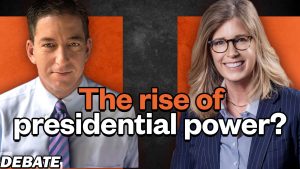Education and Free Market Solutions: A Libertarian Perspective
Education and Free Market Solutions: A Libertarian Perspective
Optimizing Education Through the Power of the Free Market
A core tenet of libertarianism is the belief in the power of individual liberty and limited government intervention. This philosophy extends to the realm of education, where libertarians advocate for free market solutions to improve quality, increase choice, and foster innovation. This approach challenges the traditional, centralized model of public schooling and proposes alternative systems driven by competition and parental empowerment.
The Case Against Government-Controlled Education
Libertarians often critique the current public education system for its perceived inefficiencies and lack of responsiveness to individual needs. They argue that a government monopoly on education stifles innovation, limits parental choice, and perpetuates a one-size-fits-all approach that fails to cater to diverse learning styles and abilities. Furthermore, they point to bureaucratic hurdles, teacher union influence, and the allocation of resources based on politics rather than merit as detrimental factors.
Free Market Alternatives: Empowering Parents and Students
So, what’s the alternative? Libertarians propose a variety of free market solutions aimed at empowering parents and students:
- School Choice: This encompasses various programs like vouchers, tax credits, and education savings accounts (ESAs) that give parents greater control over where their children attend school, regardless of their zip code or income level. This fosters competition among schools, incentivizing them to improve their offerings to attract students.
- Charter Schools: While still publicly funded, charter schools operate with greater autonomy from government regulations, allowing for more flexibility in curriculum, teaching methods, and school management. This allows for experimentation and innovation within the education system.
- Private Schools: A fully free market approach would see a flourishing private school sector, where schools compete for students based on quality, specialization, and affordability. This allows parents to select the educational environment that best aligns with their values and their children’s needs.
- Homeschooling: Homeschooling offers maximum parental control over their children’s education, allowing for personalized learning experiences tailored to individual strengths and interests. It also eliminates the bureaucratic constraints and potential negative social pressures often associated with traditional schooling.
- Online Learning Platforms: The rise of online learning platforms provides greater accessibility to a wide range of educational resources, often at a lower cost than traditional institutions. This allows for individualized pacing and access to specialized courses not available locally.
The Benefits of Educational Freedom
The anticipated benefits of a free market approach to education are numerous:
- Increased Competition and Quality: Competition forces schools to improve their quality, offer innovative programs, and cater to parental demands, leading to better educational outcomes for students.
- Greater Parental Choice and Control: Parents gain the power to choose the educational environment that best suits their children’s needs and their family’s values.
- Customized Learning Experiences: With greater flexibility and choice, students can benefit from personalized learning pathways tailored to their individual learning styles, interests, and abilities.
- Innovation and Efficiency: A free market fosters innovation by allowing new educational models and technologies to emerge and thrive, ultimately leading to a more efficient and effective education system.
Addressing Concerns about Educational Inequality
Critics of free market education often raise concerns about potential inequalities. However, libertarians argue that the current system already perpetuates inequality by trapping children in failing schools based on their zip code. They believe that empowering parents with school choice and other market-based solutions can actually help level the playing field by giving all families, regardless of income, access to quality education. Furthermore, they advocate for innovative funding mechanisms like opportunity scholarships to ensure that lower-income families have the resources to participate in a free market education system.
Conclusion: Embracing a Future of Educational Freedom
A libertarian perspective on education emphasizes individual liberty, parental empowerment, and the power of the free market to drive innovation and improve educational outcomes. By embracing free market solutions, we can create a more dynamic, responsive, and ultimately more effective education system that benefits all students.
Share this content:







Post Comment